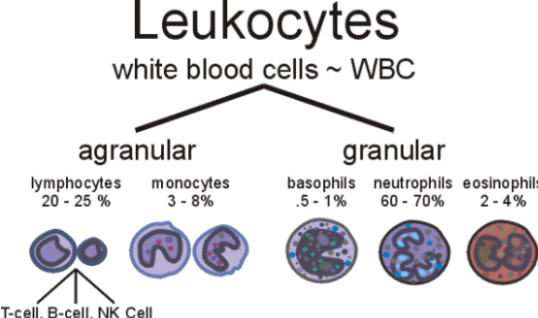WBC BLOOD TEST
Return to Neurological Variants of celiac disease

A simple white blood cell count could identify cardiovascular risk in older women who otherwise demonstrate no signs of disease, suggests an article in the March 14 issue of the Archives of Internal Medicine.
Increasing evidence supports a role for inflammation in the development of atherosclerosis, that is, thickening and hardening of the arteries, according to background information in the article.
Measurement of a number of different molecules involved in inflammation may be an effective way to identify and monitor patients at risk for coronary heart disease. White blood cell count is a stable, well-standardized, widely available and inexpensive measure of systemic inflammation, say the authors.
White Blood Cell Count as Independent Predictor
Karen L Margolis, M.D., M.P.H., of the Hennepin County Medical Center, Minneapolis, and colleagues used data from a total of 72,242 postmenopausal women aged 50 to 79 years who participated in the Women's Health Initiative (WHI) Observational Study (WHI-OS), to assess white blood cell (leukocyte) count as an independent predictor of cardiovascular events (for example, heart attack or stroke) and death from any cause.
Screening of test subjects included collection of personal information, medical history, information about previous history of cardiovascular (CVD) events or cancer, and blood collection at the beginning of the study. Follow-up was conducted by annual questionnaires, except in the third year, when participants visited a clinic for a follow-up exam.
"Because of its large size and broad representation of women from across the United States, this study provides an opportunity to determine whether the association of white blood cell count with future cardiovascular events is present in postmenopausal women and to examine the independence of this association from other known CVD risk factors and biomarkers," the authors write.
Other known CVD risk factors and biomarkers included in the analysis included age, race, ethnicity, baseline hypertension, diabetes, smoking, body mass index diet, physical activity, current use of aspirin or hormone therapy and C-reactive protein, a biomarker for inflammation.
contined to next page of heart test